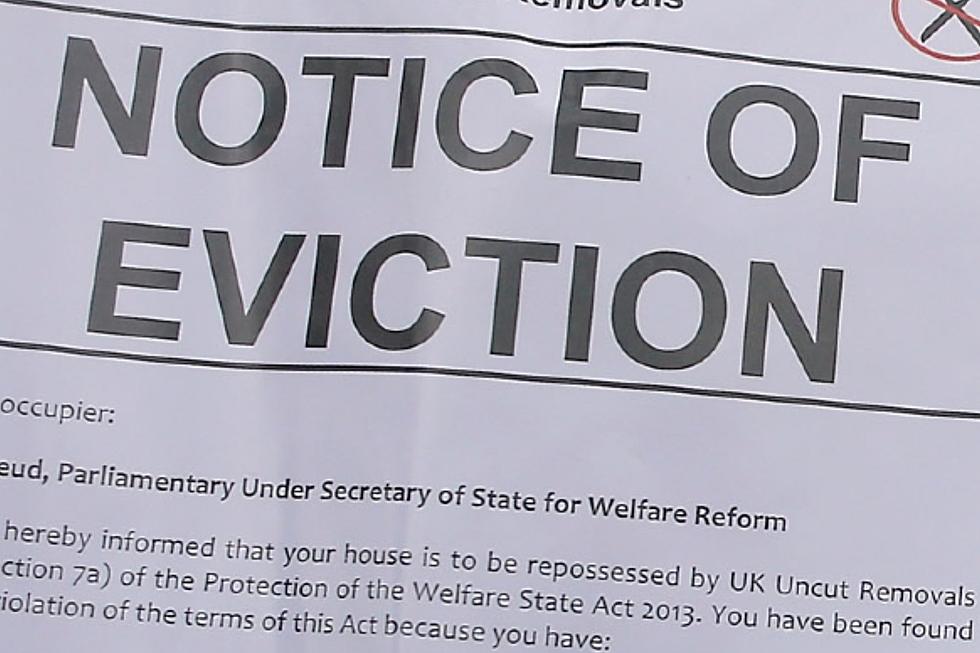
NJ hopes to head off nation’s worst eviction crisis post-COVID
State officials are hoping federal funds can help head off what they anticipate could be the nation’s worst eviction crisis, once a pandemic-era moratorium on removing renters from their homes is allowed to expire.
The eviction moratorium was put in place by Gov. Phil Murphy through a March 2020 executive order and extends until 60 days after the public health emergency is lifted. The emergency is due to expire on Friday but is likely to be renewed for another 30 days. If it’s not, evictions could begin in mid-June.
But eventually it will end, said Lt. Gov. Sheila Oliver, the commissioner of the state Department of Community Affairs.
“And even though we have one of the strongest eviction moratoriums in place in the country, we know that this moratorium will not and cannot last forever,” Oliver told the Assembly Budget Committee at a Monday hearing.
“We know that the crisis is going to be worse in New Jersey than the rest of the nation, and that’s because a higher share of renter households are behind in rent payments more than any other state in the country,” Oliver said.
Even with the moratorium in place, Oliver said the Administrative Office of the Courts reports having received about 50,000 eviction filings already. She said those are “probably landlords who wanted to get in the queue and be positioned when the moratorium is lifted.”
“It’s projected that at the end of this, we potentially could have 191,000 people who are subject to eviction,” Oliver said.
In a first round of emergency rental assistance to low- and moderate-income households, the state distributed about $92 million in federal aid to 15,080 households.
Assemblyman Benjie Wimberly, D-Passaic, said there were 60,000 applicants for those funds. He also said the Center on Budget and Policy Priorities estimates that 400,000 of the 1.1 million tenants in New Jersey are behind on their rent and unable to meet household expenses.
“If we do the math correctly, we were able to provide an average of $6,000 per household. Recognizing some may be more or less behind, this would equate to $2.4 billion owed to landlords,” Wimberly said.
Oliver said she is concerned about owner-occupied landlords in two- or three-family houses who are critically hurting after a year without receiving rent. She said owners of large properties also don’t have their expected cash flow needed to pay for other construction projects they’re pursuing.
“Unless that American Rescue Plan provides us with some extraordinary resource, we will continue to have a problem on our hands in the state,” Oliver said.
Separate from the $10.2 billion in flexible aid the American Rescue Plan will send to state, county and municipal governments in New Jersey, the latest COVID relief bill also includes $466 million for emergency rental assistance in New Jersey.
The state will also receive a portion of money approved for housing counseling services, mortgage assistance and homelessness prevention.
A second round of emergency aid for which applicants are now being received, which isn’t tied to the ARP recovery law, will have $353 million in funding, plus $22 million in additional funds specific to Burlington and Morris counties, whose programs are being administered by the state.
Janel Winter, director of the state Division of Housing & Community Resources, said it is expected that 20,000 to 40,000 households will get help through the program’s next phase, depending on the amount of back rent that has piled up over the past year.
“We are looking to pay arrears as much as possible because we want to remove the danger of eviction from households,” Winter said. “We don’t want to pay some amount, and then the households still wind up evicted after that. That’s kind of the worst-case scenario.”

The Housing and Community Development Network of New Jersey announced Monday that it had launched a new website, toll-free number and text alert system as a resource for renters, landlords and homeowners impacted financially by the pandemic. It includes free housing counseling services.
The website is HousingHelpNJ.org. The phone number is 888-691-3002, or people can text “housing help” to 313131.
The initiative is funded in part through $1.25 million from the state’s Affordable Housing Trust Fund for outreach strategies on tenants’ rights and eviction prevention.
Michael Symons is State House bureau chief for New Jersey 101.5. Contact him at michael.symons@townsquaremedia.com.
NJ towns that actually cut property taxes in 2020
LOOK: The Most Famous Actor Born Every Year
More From New Jersey 101.5 FM









